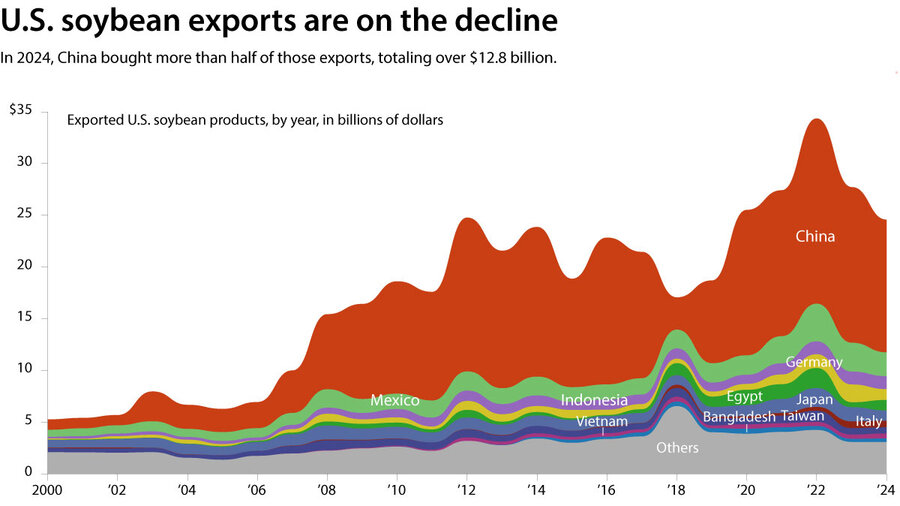The U.S. economy contracted in the first quarter. It shrank 0.3% from January through March, its first drop in three years. It was slowed by a surge in imports, affecting gross domestic output, as companies in the United States tried to bring in foreign goods before the imposition of massive tariffs. The surge in imports is likely to reverse in the second quarter, removing a weight on GDP as forecasts predict April-June growth will rebound to a 2% gain. Consumer spending also slowed sharply. – The Associated Press
China’s manufacturing sector contracted too. Factories slowed more than expected in April, an early sign 145% US tariffs on most Chinese goods are biting. New orders, production, employment, and other key activity – measured by the purchasing managers’ index – fell to a 16-month low, data released Wednesday shows. A sub-index for new export orders fell to the lowest level since December 2022. Global banks cut forecasts for China’s GDP growth for 2025 on average from 5% to about 4%. – Staff
A federal court freed a detainee in Vermont. District Judge Geoffrey W. Crawford released on bail Mohsen Mahdawi, a Palestinian student who faces deportation after leading campus protests over Israel’s war in Gaza. A Columbia University student and a lawful permanent resident, Mr. Mahdawi had been in prison for two weeks after being arrested after his naturalization interview.
The Trump administration is attempting to deport numerous lawful residents who’ve criticized Israel. As in those cases, the government is arguing Mr. Mahdawi’s continued presence in the U.S. would “potentially undermine” its foreign policy goals, including negotiating peace in Gaza. The immigration case against him will continue. “I am at peace,” Mr. Mahdawi told NPR. “I have faith that justice will prevail.” – Staff
Ukraine agreed to a mineral deal. Officials there said Wednesday that Kyiv is ready to sign an agreement that would give the U.S. access to its valuable rare earth minerals, needed for technology from smartphones to electric vehicle batteries. Kyiv hopes the deal will ensure continued American support in its war with Russia. The U.S. said in February it wanted rare earths access as a condition of that. It wasn’t immediately clear whether the Trump administration was ready to ink the deal. – AP
Harvard showed where it failed some students. Two internal reports this week outlined prejudice toward Muslim and Jewish students. The school is in the midst of a legal battle with the Trump administration, including over charges that Harvard failed to protect Jewish students, that resulted in the canceling of grants. But these reports, produced by two task forces established by Harvard last year, detail “searing” accounts of bigotry and evidence of a “charged” campus environment. Leadership is preparing next steps, wrote President Alan Garber. Across the U.S., antisemitism and Islamophobia surged in the past year. – Staff
Work on a National Climate Assessment was halted. Researchers developing it were dismissed this week by the U.S. administration, which said the project was to be reevaluated. Mandated by Congress since 1990, the scientific assessments have been generated every four years. The move reflects a concern among some in the administration that climate science has become alarmist and biased. Critics of the stoppage defended the validity of the reports. Reviewed by relevant agencies, the impact reports are widely considered to be the preeminent tool for informing, for example, preparation for extreme weather events. – Staff












